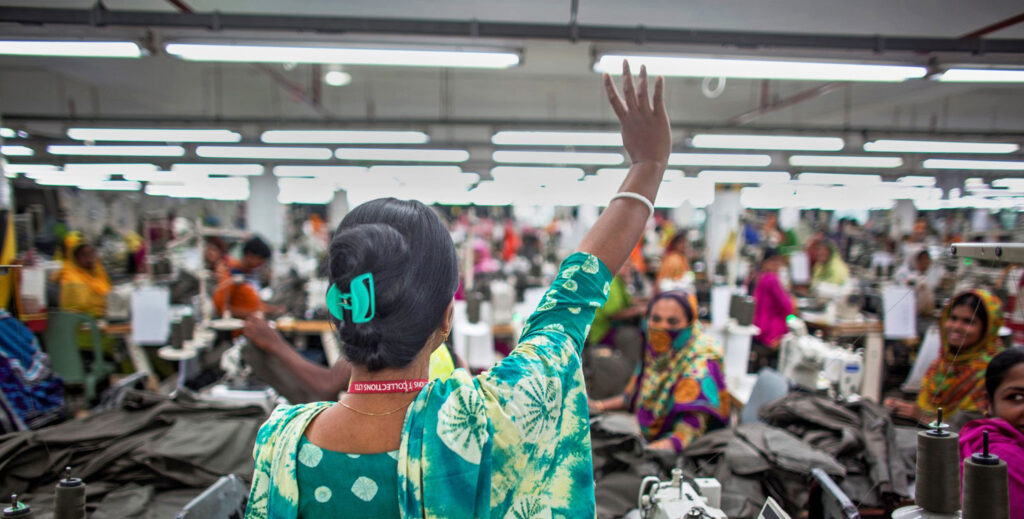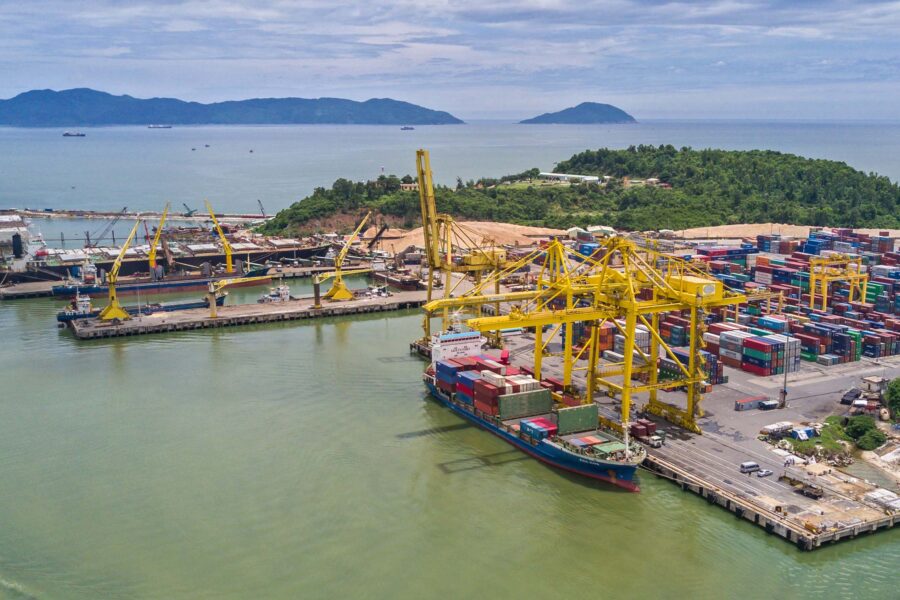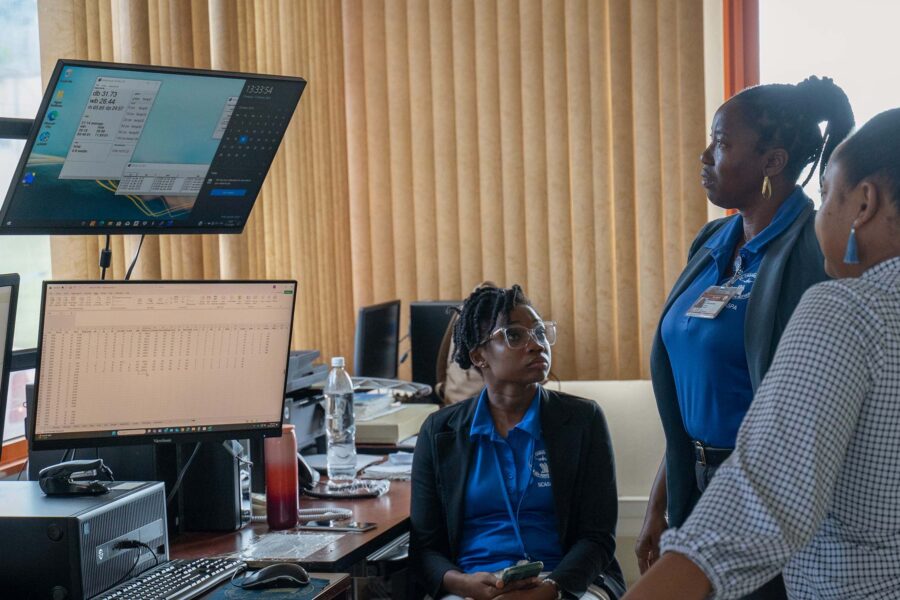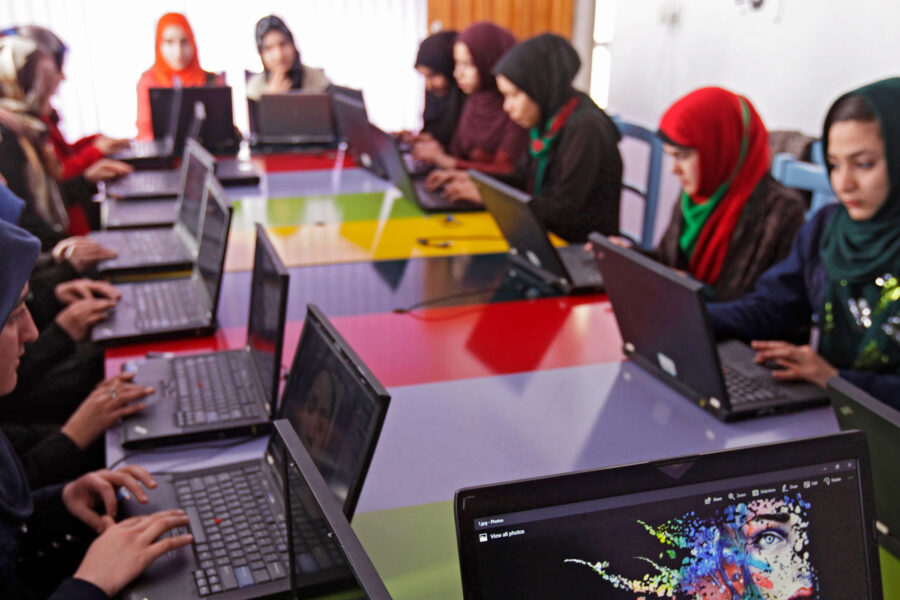Shaping the future world of work
As the pace of societal change accelerates, many jobs considered essential today will become obsolete tomorrow. Creating resilience and adaptability, particularly among the world’s most vulnerable workers, is essential and requires a global, whole-of-society policy effort and investment
Business — Global

The world of work is undergoing profound changes. Self-driving passenger cars, medicine-delivering drones, generative artificial intelligence that augments human creativity in journalism, overheating megacities with more elderly people than newborns – these descriptions were once the stuff of science fiction. Today, they are manifestations of the technological, demographic, and climate-change-related forces that impact the way we work.
The 11th ILO Monitor on the world of work paints a worrying picture of the consequences of this “polycrisis” and its disproportionate effect on developing countries. While global unemployment in 2023 is expected to fall below pre-pandemic levels – to 191 million or 5.3% – estimates show that low-income countries remain far behind. The COVID-19 crisis and uneven recovery processes took place alongside already diverging trends with regards to labor market outcomes between developing and developed economies and between vulnerable and non-vulnerable groups within countries. Among the most vulnerable and impoverished workers globally are:
- the 200 million classified as living in absolute poverty, or working poor
- the two billion in the informal economy, lacking legal rights and access to social protection
The “jobs gap,” a new labor market indicator that aims to reflect the real scale of employment challenges, is projected to be 453 million people, or 11.7%, in 2023. This indicator includes all people who would like to work but do not have a job. The jobs gap is much higher among women (14.5%) than men (9.8%). Low-income countries face the largest jobs gap rate at 21.5%, while the rate is 11% in middle-income countries and 8.2% in high-income countries. The situation is the toughest for low-income countries in debt distress, which face a jobs gap of 25.7%.
Sustainable Development Goal (SDG) 8 calls for inclusive and sustainable economic growth, and full and productive employment for all. Without concerted action, the goal is unlikely to be achieved, which will have ripple effects on other SDGs. The ILO, based on conventions and standards agreed upon through its tripartite governance structure, lessons learned from around the world, and cutting-edge analysis, can help countries navigate difficult transformations. Let’s take a closer look at the need for policy coherence, international solidarity, and social dialogue.
Comprehensive policy frameworks
Only through the coordinated design and implementation of all frameworks with a potential impact on creating employment opportunities can the goal of decent work for all be achieved. Such a coherent approach, bringing together macroeconomic, sectoral, skills, and social policy frameworks (detailed in the ILO’s resolution and conclusions to the third recurrent discussion on employment in 2022), provides the basis for job creation that recognizes that vulnerable groups need to be specifically targeted to have access to decent jobs.
Effective employment policies must be comprehensive and linked to labor market data and skills frameworks. This avoids the risk of training people for jobs that do not exist and creating jobs for which there are no skilled people. To mitigate the risk of skills mismatches, the ILO’s skills strategy for 2022–30 has the overall goal of enabling the development of systems and policies through social dialogue. These policies would provide inclusive access to high-quality skills development, quality apprenticeships, and lifelong learning opportunities to keep people employable. Specifically, the ILO is focusing on addressing skills for green and digital transformations and in the care economy.
International solidarity
In a globalized economy, developing countries cannot be expected to act alone. To address pressing unemployment, they need adequate financial resources, including concessional, long-term financing, as well as technical support for policy implementation.
One area where international solidarity is critical is in building universal social protection systems. The right to social security is set out in the Universal Declaration of Human Rights and in other international instruments such as the ILO’s flagship Social Security (Minimum Standards) Convention 102, adopted in 1952. In total, 31 conventions describe concrete obligations and guidelines for states to implement the right to social security, and guide related ILO policy and technical advice. Convention 102 has been ratified by 65 countries, the most recent being El Salvador and Comoros in 2022, and Côte d’Ivoire and Iraq in 2023.
Research shows that social protection is an investment with robust social and economic returns. The 11th ILO Monitor on the world of work provides an estimate: implementing basic old-age pensions alone has the potential to increase GDP per capita by an impressive 14.8% within 10 years for low and lower-middle-income countries. It would also contribute to a 6% reduction in the population living below the USD 2.15 purchasing power parity poverty line and a 2.5% increase in the income share of the bottom 40% of the income distribution.
The induced effects of basic pensions would also reduce the gender gap in labor income by 3.6%, equivalent to the global progress registered in the last 15 years. And the cost? In sub-Saharan Africa, for example, where coverage gaps are the widest, it would be USD 23.3 billion, approximately 12.5% of global annual official development assistance. This is a relatively low cost considering the enormous potential social and economic gains.
Universal social protection plays a key role in preventing poverty, reducing vulnerability and inequalities, and managing social tensions and conflicts, as well as building cohesive societies that are less prone to conflict. It is thus critical, especially in fragile contexts, to make sure that humanitarian assistance contributes to building social protection systems and reinforcing state capacity. In Timor-Leste, one of the 50 target countries of the ILO’s Global Flagship Programme on building social protection floors for all (phase 2), the introduction of a pension for older people and those with disabilities, together with other social provisions, was key in preventing further social unrest after a violent political crisis in 2006.
A whole-of-society approach based on enforced social dialogue
Equally important as data-driven policy is social dialogue, to assure that policies are squarely addressing people’s real needs instead of their needs as assumed by policymakers. Social dialogue should continuously inform policy at the country, regional, and global levels.
Adding to the challenge of policy coherence and solidarity between and within countries is that labor policy must be crafted in relation to multiple, interconnected drivers of change. Climate change can trigger the creation of green jobs, even while the transition to a green economy means that other jobs will become obsolete. The ILO estimates that by 2030 this tradeoff will result in the net creation of 25 million jobs.
Demographic transitions toward older populations provide opportunities for jobs in the care economy. On the other hand, in countries with a growing youth labor force, the opportunity of a demographic dividend needs to be realized by providing young people with the skills needed in the labor market.
Globalization must be reorganized to ensure that all people along supply chains profit from increasing trade. We are (rightly) worried that automation might destroy jobs, but technological progress also has the potential to create jobs in new markets. At the International Labour Conference this year, constituents agreed on a resolution concerning a just transition towards environmentally sustainable economies and societies for all. This is a key document to help guide the transitions in the world of work.
The UN Secretary-General’s Global Accelerator on Jobs and Social Protection for Just Transitions builds on lessons learned and aims to put countries on a path toward resilience and higher levels of productivity and well-being, while protecting those not profiting from the transitions. The accelerator is embedded in the Global Coalition for Social Justice forged by the ILO and is based on a solid human rights foundation, including a strong reference to international labor standards. The accelerator will help to channel national, international, public, and private investments into job creation, including in the green, digital, and care economies, and the systematic promotion of social dialogue and participation. It is expected that the first round of pathfinder countries under the accelerator will have national roadmaps ready in time for the SDG Summit in September 2023.
The world of work will look different for the next generation. If we meet our responsibility and strive toward a human-centered future, employment will be not just different, but more equitable, dignified, productive, and humane.





